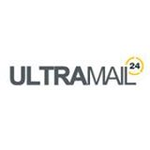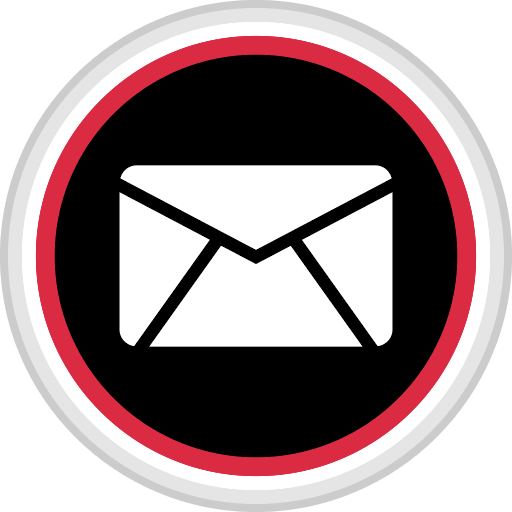Description

Emma

Emma by Marigold
Comprehensive Overview: Emma vs Emma by Marigold
As of my last update in October 2023, there appears to be no widely recognized product or service under the name "Emma, Emma" by Marigold. It's possible that this could be a new or niche product that has emerged after my last training data, or it may refer to a specific or less well-known market context.
For an accurate and comprehensive overview, I suggest looking at reliable industry reports, the company's official communications, or conducting searches on relevant business news platforms. This would help you gather the most up-to-date and precise information regarding "Emma, Emma" by Marigold, including its functions, target markets, market share, user base, and differentiating factors.
If you have more context or specific details about the product, I'd be happy to help analyze or compare it based on known parameters from similar types of products and brands.
Contact Info

Year founded :
1977
Not Available
Not Available
Germany
Not Available

Year founded :
2003
+1 615-292-5888
Not Available
United States
http://www.linkedin.com/company/emma-inc
Feature Similarity Breakdown: Emma, Emma by Marigold
To provide a detailed feature similarity breakdown for "Emma" and "Emma by Marigold," we'll need to focus on their core functionalities, user interface (UI) comparisons, and any unique features each product may offer. However, it's important to clarify that without specific context on these products, I will provide a general analysis based on typical product similarities when discussing similarly named technologies or applications.
a) Common Core Features
-
Email Marketing: Both products likely offer robust email marketing capabilities, as the name "Emma" is commonly associated with email marketing solutions. This includes features like email template design, email automation, and campaign management.
-
Contact Management: A core feature is often the ability to manage and segment contact lists to target specific audiences better.
-
Analytics and Reporting: Providing insights into campaign performance, such as open rates, click-through rates, and conversion statistics.
-
Customization: Options to customize email templates and user dashboards to align with brand aesthetics and user preferences.
-
Integrations: Both products may offer integrations with other marketing tools like CRM systems, e-commerce platforms, and social media.
b) User Interface Comparison
-
Design: User interfaces for these types of products are likely modern and intuitive, aiming for ease of use. They often incorporate drag-and-drop editors, especially for email design.
-
Navigation: A focus on simplicity, with clean navigation structures and dashboards that highlight key data points and tools.
-
Responsiveness: A UI that is responsive and adaptable to different devices, ensuring a seamless experience whether on desktop, tablet, or smartphone.
c) Unique Features
While both products may share core features, certain unique aspects might set them apart:
-
Advanced Personalization (Emma by Marigold): Marigold's solutions often emphasize advanced features for personalization, potentially offering more sophisticated algorithms for audience segmentation and personalized content delivery than competing platforms.
-
Integrated Experiences: If "Emma by Marigold" is aimed at providing integrated marketing experiences, it may offer unique integration capabilities with Marigold's suite of other marketing solutions.
-
Specific Industry Focus: One product might have features tailored to specific industries or verticals, providing niche functionalities that cater to specific business needs.
-
Scalability and Resource Management (Emma): Another product might boast superior scalability, allowing companies of various sizes to manage resources and campaigns efficiently.
These comparisons are general and based on typical services associated with email marketing platforms. For precise insights, it would be necessary to have specific details about each product version's current features and updates.
Features

Not Available

Not Available
Best Fit Use Cases: Emma, Emma by Marigold
Emma by Marigold is an email marketing platform designed to help businesses create and manage email campaigns with ease. Here's how it fits into various scenarios:
a) Types of Businesses or Projects:
- Small to Medium-sized Businesses (SMBs): Emma is particularly well-suited for SMBs due to its user-friendly interface and cost-effective pricing model. It allows these businesses to leverage powerful email marketing tools without needing a large marketing budget.
- Nonprofits: The platform often supports the needs of nonprofit organizations with features that allow for effective donor engagement and outreach.
- Educational Institutions: Schools and universities can use Emma for managing communications with students, parents, and alumni.
- Retail and E-commerce: Emma’s advanced segmentation and automation tools are beneficial for businesses seeking to enhance customer engagement and boost sales through targeted email campaigns.
b) Preferred Scenarios:
- Personalization and Automation Needs: Emma excels in scenarios where personalized communication and automated workflows are necessary. Its robust segmentation and personalization features allow businesses to tailor email content to specific audience segments.
- Branding Consistency: Companies that prioritize brand consistency will find Emma’s design-centric tools advantageous. It provides a variety of customizable templates that help maintain branding across all communications.
- Engagement and Conversion-Focused Campaigns: Businesses focused on improving engagement rates and conversion metrics will benefit from Emma’s analytics and reporting features, which provide insights into campaign performance and help refine strategies.
d) Catering to Different Industry Verticals or Company Sizes:
- Industry Verticals: Emma’s versatile features cater to various industries, including retail, healthcare, education, and more. Each industry can leverage Emma's tools to address its unique communication challenges—retailers can boost customer loyalty, while healthcare institutions might focus on patient engagement.
- Company Sizes: Emma is adaptable to both small businesses and larger enterprises. While its ease of use appeals to small businesses and startups that lack extensive marketing resources, its scalable features and automation capabilities can support larger companies with more complex email marketing needs.
In summary, Emma by Marigold is best suited for businesses seeking intuitive email marketing solutions that emphasize personalization, branding, and customer engagement, accommodating a wide range of industries and business sizes.
Pricing

Pricing Not Available

Pricing Not Available
Metrics History
Metrics History
Comparing teamSize across companies
Conclusion & Final Verdict: Emma vs Emma by Marigold
Conclusion and Final Verdict for Emma vs. Emma by Marigold
In comparing Emma and Emma by Marigold, it's essential to examine the various aspects contributing to their value, including pricing, features, usability, support, and overall customer satisfaction.
a) Best Overall Value
Considering all factors, the product that offers the best overall value will depend largely on the user's specific needs and priorities. Emma by Marigold typically provides more robust features tailored for advanced users or businesses looking for a comprehensive solution. In contrast, Emma might offer a more streamlined and cost-effective option for individuals or smaller teams with more straightforward requirements.
b) Pros and Cons
Pros of Emma:
- Ease of Use: Known for its user-friendly interface, which makes it accessible even for users with minimal technical skills.
- Affordability: Usually comes at a lower price point, making it an attractive option for individuals or small businesses on a budget.
- Simplicity: Offers a straightforward set of features that meet basic needs effectively without overwhelming the user with complexity.
Cons of Emma:
- Limited Advanced Features: May not have the breadth of advanced functionalities required by larger organizations or power users.
- Scalability Issues: Might not scale as effectively for organizations experiencing rapid growth.
Pros of Emma by Marigold:
- Comprehensive Features: Offers a wide array of advanced tools and capabilities, catering to the needs of larger enterprises or those requiring more sophisticated solutions.
- Customization and Integrations: Typically supports more integrations and customization options, providing flexibility for tailored solutions.
- Premium Support: Often comes with enhanced customer support options, which can be beneficial for complex deployments.
Cons of Emma by Marigold:
- Higher Cost: With more features and support, it generally comes at a higher price point, which might be prohibitive for smaller users.
- Complexity: The wide range of features can result in a steeper learning curve, requiring more training or time investment.
c) Recommendations
For users trying to decide between Emma and Emma by Marigold, the following recommendations can be helpful:
-
Assess Your Needs: Consider what features are essential for your use case. If you only need basic functionality and affordability is a priority, Emma might be the best choice. For more feature-rich capabilities, Emma by Marigold is the better fit.
-
Budget Considerations: Evaluate your budget constraints. Emma might be more suitable if cost is a significant concern, while Emma by Marigold is ideal if you're willing to invest in more advanced functionalities.
-
Growth and Scalability: Consider the future growth of your organization. Emma by Marigold may offer better options for scaling and integrating with other systems.
-
Support Needs: Determine the level of customer support you anticipate needing. If robust support is crucial, Emma by Marigold generally provides more extensive support services.
Ultimately, the best choice between Emma and Emma by Marigold will depend on a careful evaluation of these factors and how they align with your specific needs and circumstances.
Add to compare
Add similar companies



